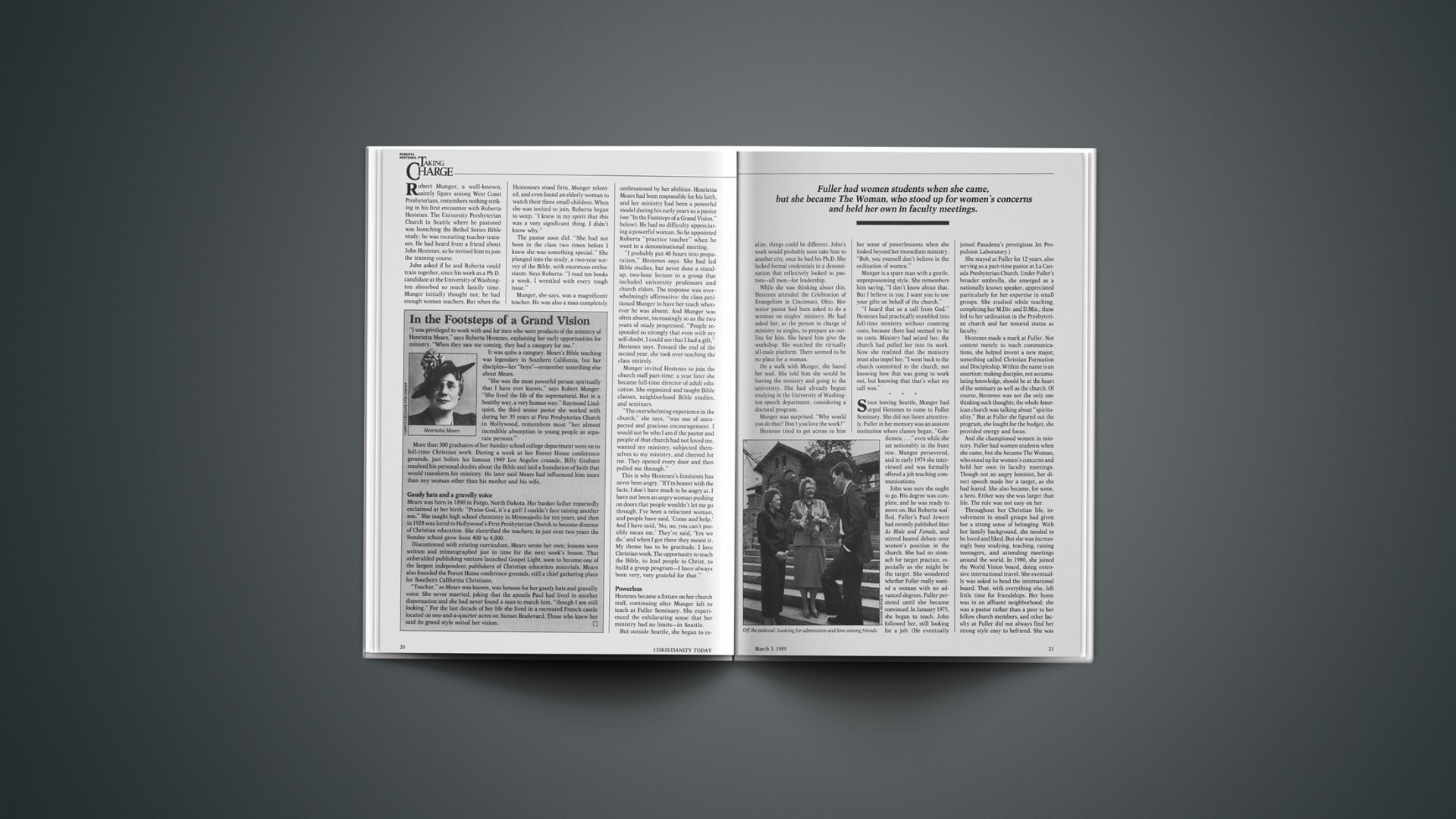God Is My Cosigner
Since we are only stewards of the possessions God has seen fit to give us, every decision we make relating to our possessions has a spiritual implication. I wonder sometimes what difference it would make in our spending if Jesus had to appear in bodily form to co-sign all our checks before they would be negotiable.
—Cordell Dick in the Christian Leader (Dec. 20, 1988)
Bad Measure
The number one issue with most people when it comes to choosing a career is money. But compared to work that you’ll do well and enjoy doing, money is a rotten standard for making or evaluating career decisions.
—Dick Staub in World Christian (March/April 1988)
No One There
The ethical crisis in our public life stems not from the lack of parochial ethical standards but from the failure to turn to any transcendent standard in making decisions as individuals or as communities. We are not calling our offices [for guidance on how to proceed], because there is no one there to take the call. And if we did call, we would get only a recorded message we ourselves had made, advising us to do whatever will enhance the bottom line, make us feel good or guarantee a profit and/or a victory, preferably both.
—James M. Wall in the Christian Century (June 1, 1988)
Single-Minded Purpose
When Luther’s puppy happened to be at the table, he looked for a morsel from his master, and watched with open mouth and motionless eyes; he [Martin Luther] said, “Oh, if I could only pray the way this dog watches the meat! All his thoughts are concentrated on the piece of meat. Otherwise he has no thought, wish or hope.”
—Martin Luther’s Table Talk
The New Paganism
It is highly probable that in tomorrow’s world Christianity will need to fend for itself either in a secularized social milieu of intellectual atheism that empties the churches or in a society where a religious sense of many coexisting gods saturate civic culture as did ancient paganism. In the one case, Christian orthodoxy will be charged with espousing the objective existence of a supernatural reality in an age when religion is presumed to traffic only in optional myths; in the other case, Christian orthodoxy will be charged anew with intolerance and with atheism, because to deny everyone else’s gods violates public piety and its approval of the plural gods.
—Carl F. H. Henry in a speech commemorating the founding of Northern Baptist Theological Seminary (Nov. 12, 1987)
No Two-Bit Deity
Explain the Trinity? We can’t even begin. We can only accept it—a mystery, disclosed in Scripture. It should be no surprise that the triune Being of God baffles our finite minds. We should be surprised, rather, if we could understand the nature of our Creator. He would be a two-bit deity, not the fathomless Source of all reality.
—Vernon Grounds in Radical Commitment
Lesson From Gethsemane
Gethsemane teaches us that the kingdom of God is entered only through the denial of one’s own will and the affirmation of the will of God. Therefore, the cross must stand central to an understanding of the kingdom. Since the essence of the kingdom is our obedience to the absolute will of God, we understand it only as we bring our own will to the foot of the cross. No self-will can live unchallenged in God’s kingdom.
—Dennis Corrigan in Bridge-Builder (Nov./Dec. 1988)
In The Image Of Man
If the devil doesn’t exist, but man has created him, he has created him in his own image and likeness.
—Feodor Dostoevski in The Brothers Karamazov
Forgotten War
When religion is in a state of quiet and prosperity … the soldiers of the church militant will then tend to forget they are at war. Their ardor slackens and their zeal languishes. John Owen has made an apt comparison: religion in a state of prosperity is like a colony that is long settled in a strange country. It is gradually assimilated in features, demeanor and language to the native inhabitants until at length every vestige of its distinctiveness has died away.
—William Wilberforce in Real Christianity










